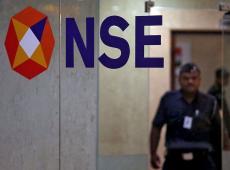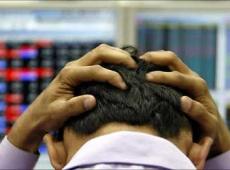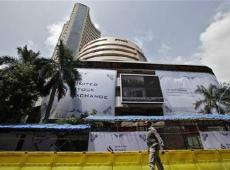Retail Investor Surge in Stock Market: Economic Survey Cautions
By Rediff Money Desk, New Delhi Jul 22, 2024 15:23
India's Economic Survey warns of risks from rising retail investor participation in the stock market, highlighting potential for overconfidence and speculation. Read more.
New Delhi, Jul 22 (PTI) The Economic Survey on Monday cautioned against significant increase in retail participation in the stock market, saying expectation of higher returns without real market conditions is a matter of concern.
At the same time, it also mentioned that enhanced participation of retail investors lends stability to the capital market and noted the increasing interest of these investors in the derivative trading.
Over the last few years, the Indian capital markets have seen a surge in retail activity through direct trading in markets through their accounts and indirect trading through mutual fund channels.
According to Economic Survey 2023-24, retail investors' share in the equity cash segment turnover was at 35.9 per cent in 2023-24 (FY24). The number of demat accounts with both depositories rose to 1,514 lakh in FY24 from 1,145 lakh in FY23.
The impact of this influx of the investors in the market is also reflected in new investor registrations with the exchanges, their share in total traded value, net investments, and ownership in the listed companies.
For instance, the registered investor base at NSE has nearly tripled from March 2020 to to 9.2 crore as of March 31, 2024, potentially translating into 20 per cent of the Indian households now channelling their household savings into financial markets.
"The significant increase in retail investors in the stock market calls for careful consideration. This is crucial because the possibility of overconfidence leading to speculation and the expectation of even greater returns, which might not align with the real market conditions, is a serious concern," said the document tabled by Finance Minister Nirmala Sitharaman in Parliament.
The survey noted that a rise in retail participation was more substantial and steadier through the indirect channel --mutual funds. The FY24 has been a spectacular year for mutual funds as their assets under management (AUM) increased by Rs 14 lakh crore or 35 per cent year-on-year to Rs 53.4 lakh crore at the end of FY24, boosted by mark-to-market (MTM) gains and expansion of the industry.
The total number of folios increased to 17.8 crore at the end of FY24 from 14.6 crore at FY23-end.
Some of the factors that facilitated the entry of investors included seamless technological integration, government measures towards financial inclusion, growth of digital infrastructure, rapid smartphone penetration, a rise of low-cost brokerages, the pursuit of generating income from alternative sources and lower returns generated by traditional asset classes such as real estate and gold.
However, retail investors have cashed in their gains in financial markets and been investing in real assets.
The survey said that the enhanced participation of retail investors in the Indian capital market is hugely welcome and lends stability to the capital market. Also, it has enabled retail investors to earn higher returns on their savings.
Noting the interest of retail investors in the derivative market, the survey said," the derivatives are hedging instruments, they are mostly used as speculative instruments by investors worldwide. India is likely no exception".
"Derivatives trading holds the potential for outsized gains. Thus, it caters to humans' gambling instincts and can augment income if profitable. These considerations are likely driving active retail participation in derivatives trading," the Survey said.
The survey calls for raising investor awareness and continuous financial education to warn them of the low or negative expected returns from derivatives trading.
It, further, said that a significant stock correction could see losses that are more considerable for retail investors participating in capital markets through derivatives.
"Investors' behavioural response would be to feel 'cheated' by unseen more considerable forces. They may not return to capital markets for a long time. That is a loss to them and the economy," it added.
At the same time, it also mentioned that enhanced participation of retail investors lends stability to the capital market and noted the increasing interest of these investors in the derivative trading.
Over the last few years, the Indian capital markets have seen a surge in retail activity through direct trading in markets through their accounts and indirect trading through mutual fund channels.
According to Economic Survey 2023-24, retail investors' share in the equity cash segment turnover was at 35.9 per cent in 2023-24 (FY24). The number of demat accounts with both depositories rose to 1,514 lakh in FY24 from 1,145 lakh in FY23.
The impact of this influx of the investors in the market is also reflected in new investor registrations with the exchanges, their share in total traded value, net investments, and ownership in the listed companies.
For instance, the registered investor base at NSE has nearly tripled from March 2020 to to 9.2 crore as of March 31, 2024, potentially translating into 20 per cent of the Indian households now channelling their household savings into financial markets.
"The significant increase in retail investors in the stock market calls for careful consideration. This is crucial because the possibility of overconfidence leading to speculation and the expectation of even greater returns, which might not align with the real market conditions, is a serious concern," said the document tabled by Finance Minister Nirmala Sitharaman in Parliament.
The survey noted that a rise in retail participation was more substantial and steadier through the indirect channel --mutual funds. The FY24 has been a spectacular year for mutual funds as their assets under management (AUM) increased by Rs 14 lakh crore or 35 per cent year-on-year to Rs 53.4 lakh crore at the end of FY24, boosted by mark-to-market (MTM) gains and expansion of the industry.
The total number of folios increased to 17.8 crore at the end of FY24 from 14.6 crore at FY23-end.
Some of the factors that facilitated the entry of investors included seamless technological integration, government measures towards financial inclusion, growth of digital infrastructure, rapid smartphone penetration, a rise of low-cost brokerages, the pursuit of generating income from alternative sources and lower returns generated by traditional asset classes such as real estate and gold.
However, retail investors have cashed in their gains in financial markets and been investing in real assets.
The survey said that the enhanced participation of retail investors in the Indian capital market is hugely welcome and lends stability to the capital market. Also, it has enabled retail investors to earn higher returns on their savings.
Noting the interest of retail investors in the derivative market, the survey said," the derivatives are hedging instruments, they are mostly used as speculative instruments by investors worldwide. India is likely no exception".
"Derivatives trading holds the potential for outsized gains. Thus, it caters to humans' gambling instincts and can augment income if profitable. These considerations are likely driving active retail participation in derivatives trading," the Survey said.
The survey calls for raising investor awareness and continuous financial education to warn them of the low or negative expected returns from derivatives trading.
It, further, said that a significant stock correction could see losses that are more considerable for retail investors participating in capital markets through derivatives.
"Investors' behavioural response would be to feel 'cheated' by unseen more considerable forces. They may not return to capital markets for a long time. That is a loss to them and the economy," it added.
Source: PTI
Read More On:
DISCLAIMER - This article is from a syndicated feed. The original source is responsible for accuracy, views & content ownership. Views expressed may not reflect those of rediff.com India Limited.
You May Like To Read
TODAY'S MOST TRADED COMPANIES
- Company Name
- Price
- Volume
- GTL Infrastructure
- 2.76 (+ 3.76)
- 403643100
- YES Bank Ltd.
- 25.67 (+ 3.59)
- 39175439
- Vodafone Idea L
- 15.89 (+ 0.06)
- 38020100
- Khoobsurat
- 1.56 (+ 4.70)
- 28455818
- NCL Research
- 0.91 (+ 4.60)
- 18225834
MORE NEWS

Sanstar IPO Over-Subscribed 13.47 Times on Day 2
Sanstar Ltd's IPO received 13.47 times subscription on the second day, with strong...

JNPA to Build Rs 285 cr Agri Processing Facility
JNPA receives approval to build India's first agricultural commodity-based processing...

Sebi Finds No Evidence of Unfair Trading on...
Sebi has not received any specific information on unfair trading during the stock...












 © 2024 Rediff.com India Limited. All rights reserved.
© 2024 Rediff.com India Limited. All rights reserved.